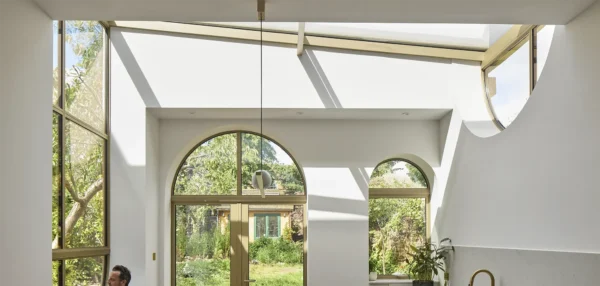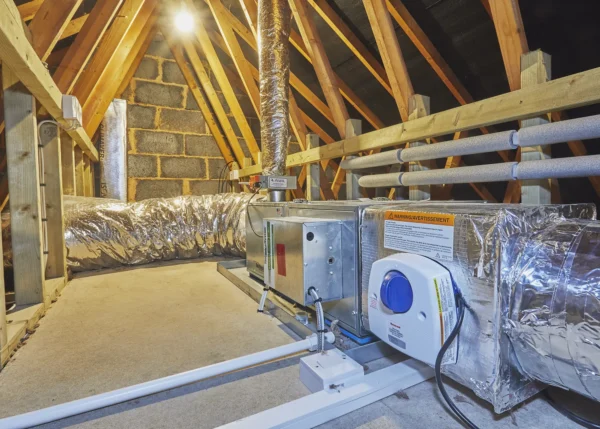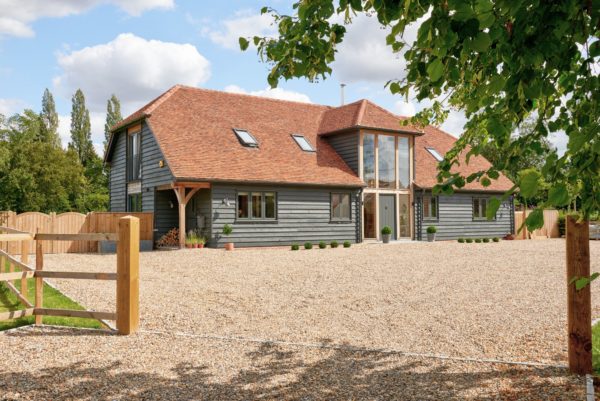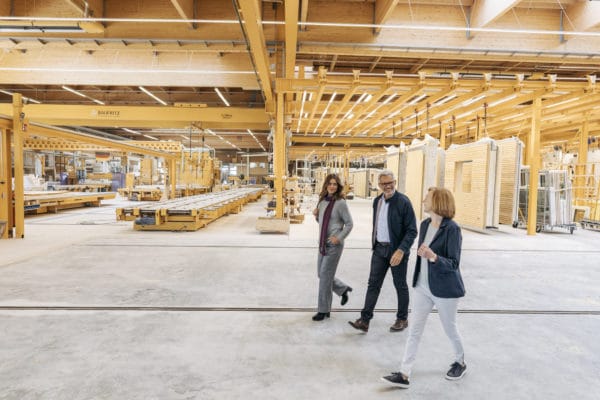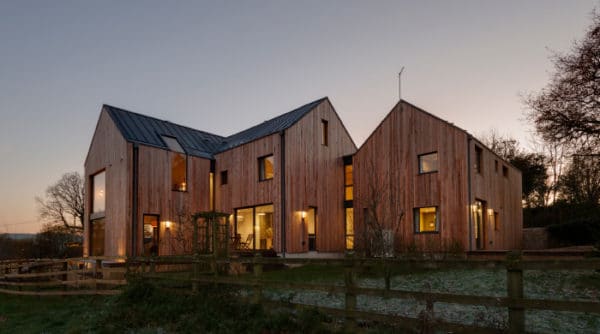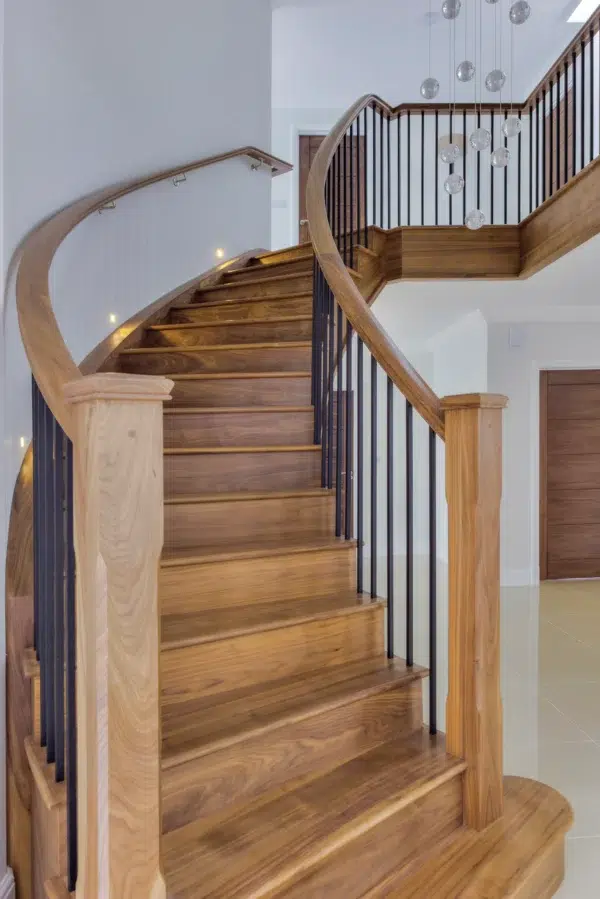Build Your Home Faster and Cheaper with SIPs
When it comes to choosing the best structural system for their new homes, self builders have traditionally faced something of a juggling act. How do you find a construction method that provides the optimum balance between cost, speed of build, energy efficiency, design factors and your preferred project management route?
It’s a challenging decision and one that you’ll want to talk through in depth with your designer. But new research suggests your build system choice could be easier than you might think.
SIPs: A quick & cost effective system
Modern, offsite construction methods such as structural insulated panels (SIPs) can tick all the boxes in terms of build speed, performance and quality. But did you know that SIPs’ ability to get your project to watertight stage sooner, thus cutting the building programme by several weeks, can also save you money?
That’s what Kingspan Insulation discovered when it asked Currie & Brown to put together a White Paper investigating how much time could be saved by switching from masonry construction to SIPs panels.
Currie & Brown engaged with a range of industry experts, alongside correlating current market data, to put together clear construction programme timelines for different types of new build home.
The Cost of Speed White Paper looks at three different building scenarios. Here, we’re focussing on the findings for constructing a 120m2, two-storey detached dwelling – similar to the kind of property a self builder might create – in masonry versus the Kingspan TEK SIPs system.
How long does it take to build a masonry home?
The research found that a typical masonry build should reach completion, including internal fit-out works, in a total of 30 weeks.
The main barriers to speedier construction come during the core construction phases. The use of conventional masonry cavity walling (a wet trade) means it takes 18 weeks for the project to reach weathertight stage (shown in green).
Typical Build Programme: 120m2 House using Masonry

- Substructure: Weeks 1-4
- Shell & Core Construction: Weeks 5-20
- Fit-Out: Weeks 18-30
- Watertight Stage Reached: Week 18
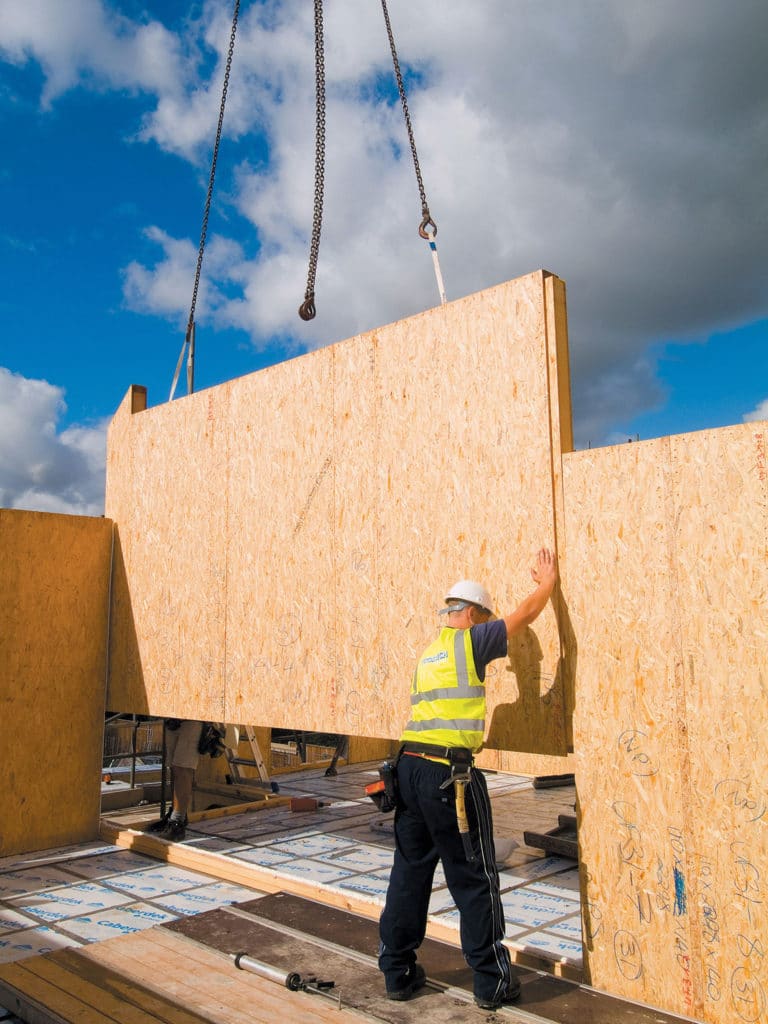
The Kingspan TEK Building System is an offsite-manufactured SIPs panel construction method offering speed and cost-saving benefits
How quick is it to build a SIPs home?
The White Paper shows that building with the Kingspan TEK Building System means a two-storey, 120m2 detached house can be completed eight weeks (26%) faster than a comparative masonry project.
That speed improvement comes down to the house reaching watertight stage at 10 weeks (eight weeks quicker than with masonry). This allows follow-on trades and fit-out works to start on site much earlier than on a traditional masonry build.
Typical Build Programme: 120m2 House using Kingspan TEK Building System

- Substructure: Weeks 1-4
- Kingspan TEK Build System: Weeks 5-6
- Additional Items: Weeks 7-12
- Fit-Out: Weeks 10-22
- Watertight Stage Reached: Week 10
Cost of speed: SIPs vs masonry construction
In two of the three building scenarios, Currie & Brown’s report shows that the Kingspan TEK Building System delivers construction cost savings of up to 2.9% in comparison to using masonry.
Most of those savings come down to the speed of building with a SIPs system like Kingspan TEK, and the fact a project reaches watertight stage sooner.
The reduced length of the building programme means you’ll spend less on preliminaries such as site management, cabins, temporary WCs, plant hire and scaffolding.
In the belowcost model for a 120m2 detached house, this equates to a £4,880 saving (£24,120 with TEK, versus £29,000 with masonry).
The subtotal for works in the main construction phase is very slightly higher (£600) with TEK – coming in at £118,200 versus £117,600 for masonry.
So, overall the report found that the offsite Kingspan TEK system can offer a cost saving against masonry construction of £4,280 (or £36 per m2 of floor space).
COST COMPARISON: 120m2 Two-Storey Detached House
| Element | Masonry | Kingspan TEK | ||
|---|---|---|---|---|
| £/m2 | £ Total | £/m2 | £ Total | |
| Prelims: site management, scaffold etc | £125 | £15,000 | £84 | £10,120 |
| Other prelims | £50 | £6,000 | £50 | £6,000 |
| Contractor's overheads & profit | £67 | £8,000 | £67 | £8,000 |
| PRELIMINARIES SUB-TOTAL | £242 | £29,000 | £201 | £24,120 |
| Substructure | £125 | £15,000 | £125 | £15,000 |
| Superstructure & external wall finishes | £240 | £28,800 | £370 | £44,400 |
| Roof structure | £50 | £600 | Included in superstructure | |
| Roof covering | £50 | £6,000 | £50 | £6,000 |
| Stairs | £20 | £2,400 | £20 | £2,400 |
| External windows & doors | £65 | £7,800 | £65 | £7,800 |
| Internal walls & partitions | £70 | £8,400 | Included in superstructure | |
| Internal doors | £50 | £6,000 | £50 | £6,000 |
| Internal finishes | £90 | £10,800 | £90 | £10,800 |
| Fixtures, fittings & equipment | £45 | £5,400 | £45 | £5,400 |
| Services | £170 | £20,400 | £170 | £20,400 |
| Allowance for airtightness | £5 | £600 | Included in superstructure | |
| CONSTRUCTION WORKS SUB-TOTAL | £980 | £117,600 | £985 | £118,200 |
TOTAL | £1,222 | £146,600 | £1,186 | £142,320 |
In addition to the headline cost benefits, getting to watertight stage quicker will protect your project against unexpected and costly delays on site. And moving in eight weeks quicker could net you savings on rent or mortgage costs in your current property, too.
The cost model is based on a 120m2 house constructed to Building Regulations standards. Given methods such as SIPs can make more demanding performance standards simpler to achieve, the benefits could be even greater for a higher-spec home.
| Kingspan Insulation manufactures a range of high-quality rigid insulation products and the high-performance Kingspan TEK Building System – a simple but revolutionary way to build your dream home quickly, affordably and with outstanding energy efficiency. |
Main image: This modern Scottish farmhouse was constructed with the Kingspan TEK Building System. The 250m2 self build project was completed for £206,000 in 2016. Find out more about this TEK project >
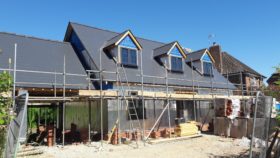
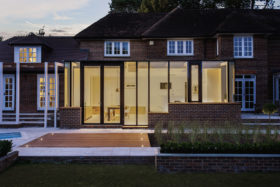



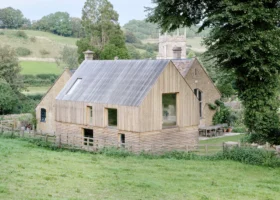
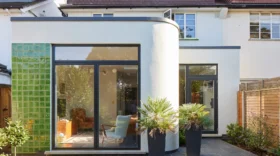
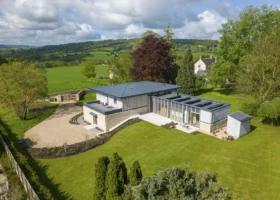
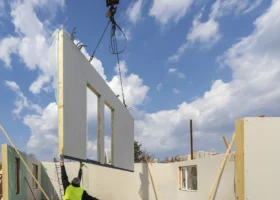
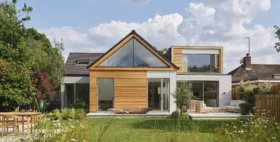
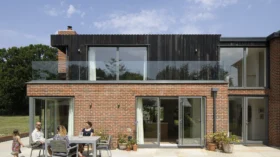

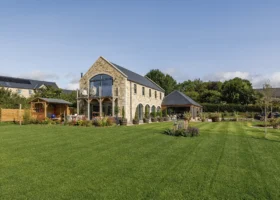

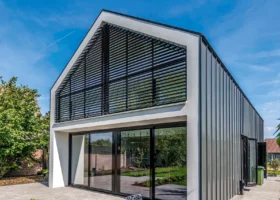

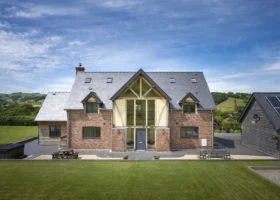
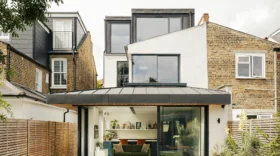
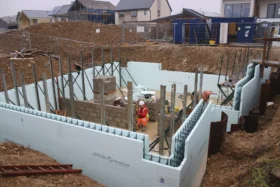
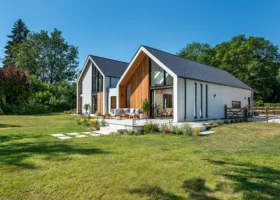
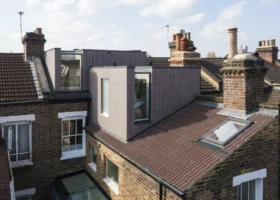
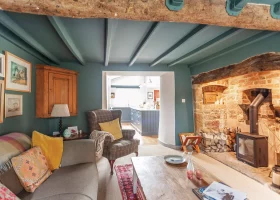
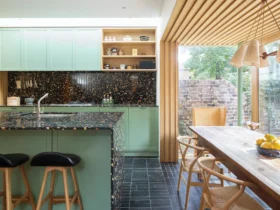
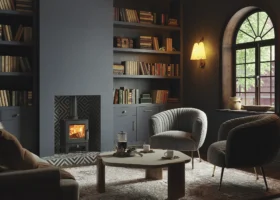
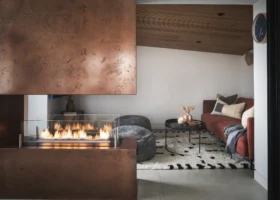
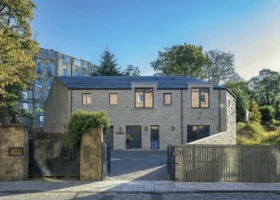
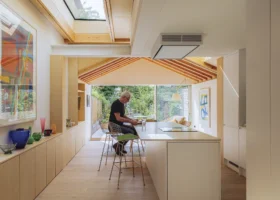
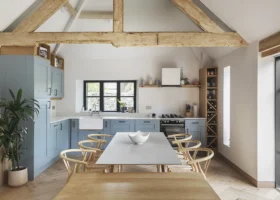
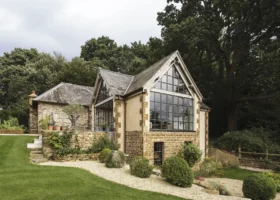
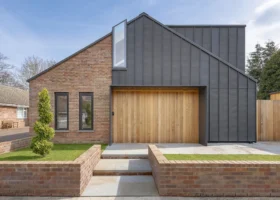
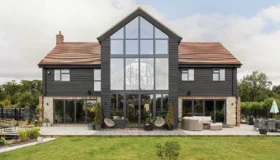
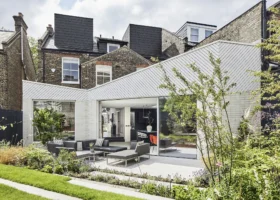
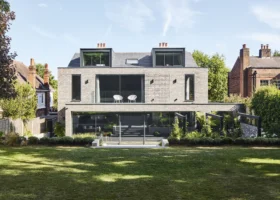
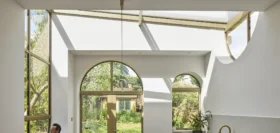
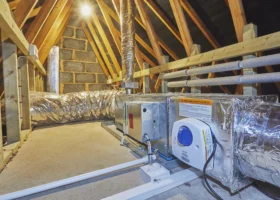
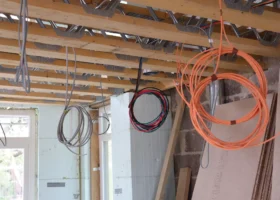

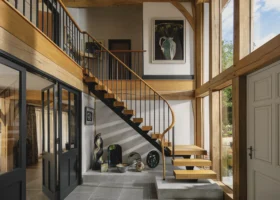
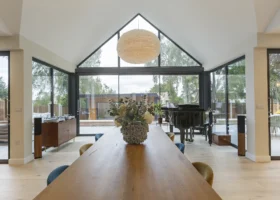
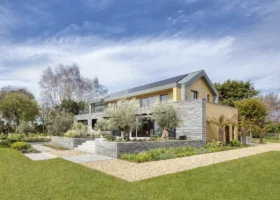
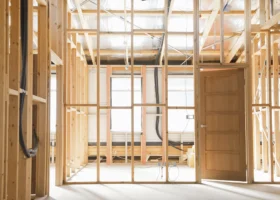
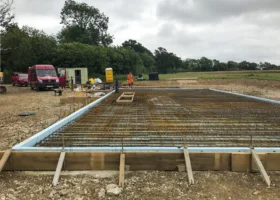
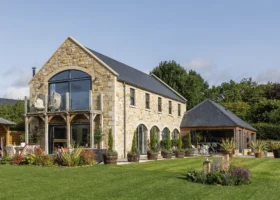

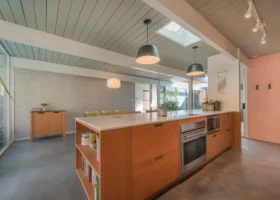

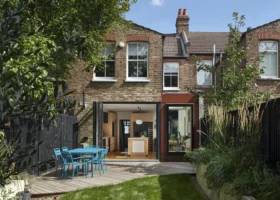
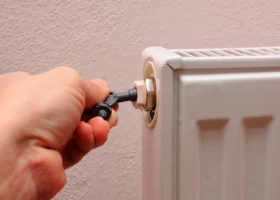

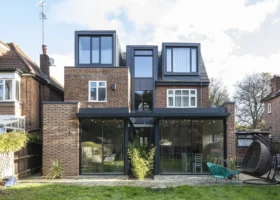
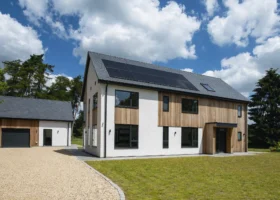
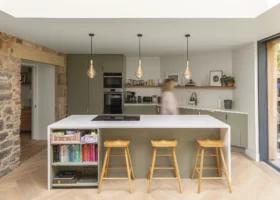
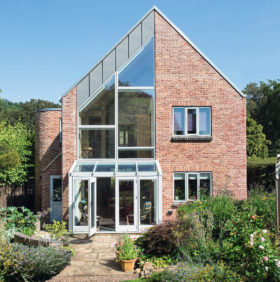
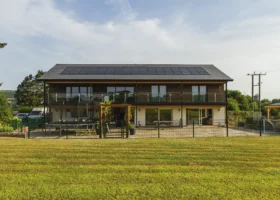
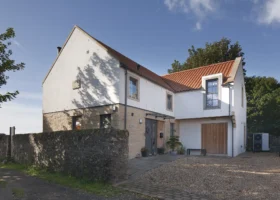


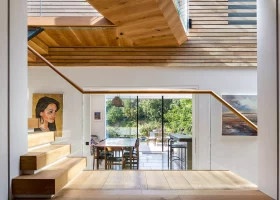
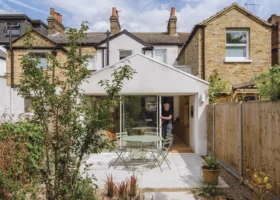
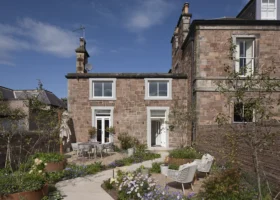
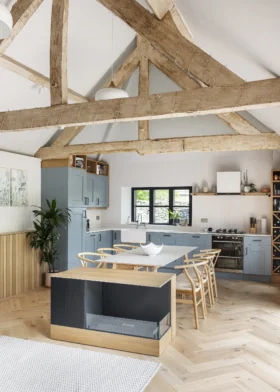
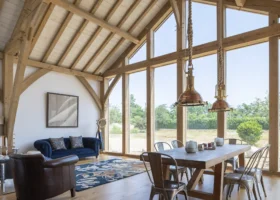









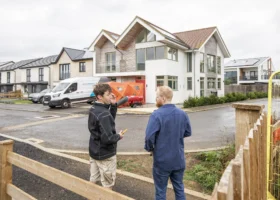








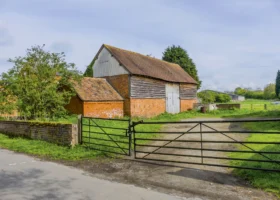
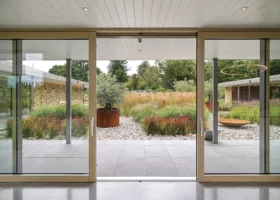


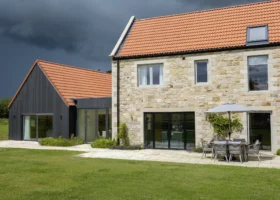


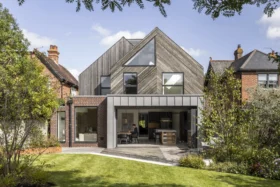








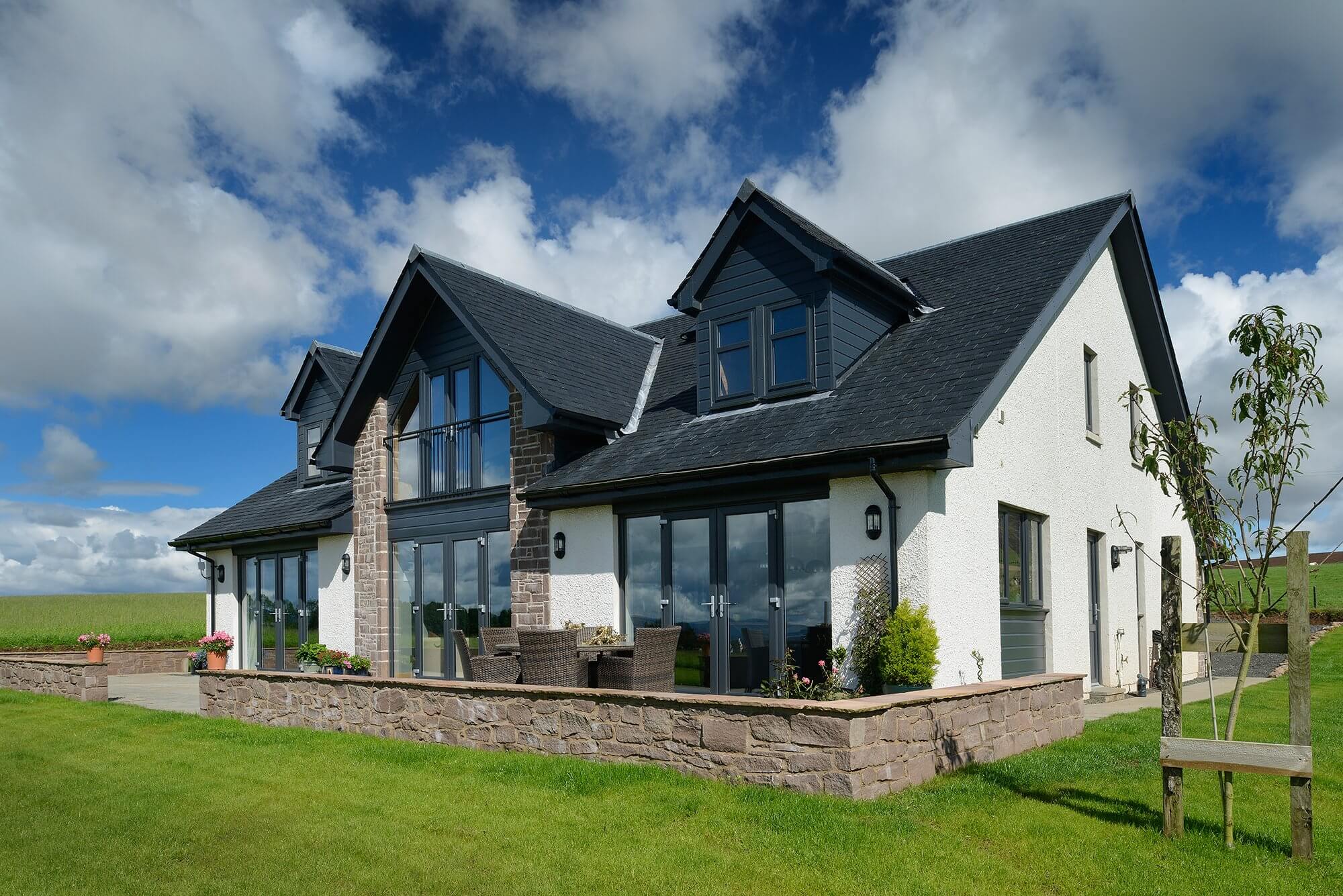
 Login/register to save Article for later
Login/register to save Article for later

